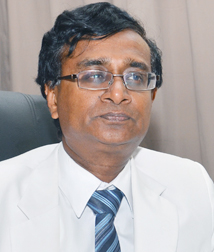The school admission scam ...and the Royal fiasco
by Rukshana Rizwie
In an education system that's rigged with corruption and cronyism,
the culture of brown-nosing becomes a costly competition. Eventually the
highest bidder wins.
 In the wake of shocking transfers of several school principals over
allegations of corruption and bribery, authoritative sources at the
Auditor General's Department and the Ministry of Education have made
startling revelations that the school admission scams were not unknown
to the authorities In the wake of shocking transfers of several school principals over
allegations of corruption and bribery, authoritative sources at the
Auditor General's Department and the Ministry of Education have made
startling revelations that the school admission scams were not unknown
to the authorities
The Education Ministry has initiated inquiries against the Principals
of Ananda College, Kingswood College and D. S. Senanayake College,
sources at the Ministry told the Sunday Observer.
"The probes were initiated after the ministry reviewed serious
complaints over school admission issues", sources said pointing out that
the Principals of Kingswood College, Kandy and D.S. Senanayake College,
Colombo, have already been transferred out.
Detailed audit reports and account summaries were accessed by the
Sunday Observer. Meanwhile, official sources at the Ministry of
Education and Department pointed out that the reports seeking a swift
response had been sent to the relevant authorities a year ago, but to no
avail.
 |
|
Former Royal College
Principal Upali Gunasekera.
Pic: ANCL Media Library |
"Every attempt to reveal the state of affairs at many popular schools
in Colombo, Kandy, Galle and Matara has been conveniently swept under
the carpet due to cronyism, leaving no reprieve for parents and causing
repercussions for those involved," said a reliable source who wished to
remain anonymous. "In 2015 alone, 8,000 students were admitted to Grade
One at several schools, despite the fact that none of them qualified.
This is the height of corruption because education is not free," he
added.
It is widely acknowledged that the academic race is increasingly
rigged in favour of the wealthy and well-connected, who would pay large
sums and exert influence to give their children an edge at State-run
schools. Sri Lankans have become inured to a certain level of official
malfeasance, especially in the education sector.
Corruption in education
"When it comes to State-schools, nearly everything comes with a
price. This ranges from school admissions, placement in top classes to
positions in school societies," the source said, "Very soon the post of
class-monitor will be available for sale".
According to audit reports, parents send applications to nearly every
school in the vicinity, hoping their child will be selected to one of
the best. "Ideally, when a school selects a child, the name of that
child should be crossed off the list of other schools, but this does not
happen," the source said.
Detailed audit reports showed that for the academic year 2015, when a
child was already selected to Ananda College, the name still remained on
the Nalanda College Admission list. Last year alone, 19 students who
were selected for Grade One admissions to Ananda were also listed for
Nalanda. Twenty-nine students who were selected to D.S Senanayake were
also listed in Isipathana Vidyalaya.Twenty-five who were selected to
Visakha were also in the Sirimavo Bandaranaike list while 19 students
who were selected to Visakha were also included on the St.Paul's Girls'
School, Milagiriya top list.
Interview Boards rigged
"Judging from the list 92 students who were eligible for Grade One
admissions were left without an opportunity to be enrolled, despite the
fact that there were vacancies," the source said. "What we have
consistently advised is that the members of the School Board meet the
Director of National Schools to remove the duplicates and give students
on the waiting list a chance to be enrolled."
Based on the Grade One admission circular No: 23/ 2013 of May 23,
2013 issued by the Education Ministry Secretary, before the parents are
notified of the selection, a meeting has to be called for by the
Provincial Education Director with the Principals to check if the
students have been selected to more than one school.
The source added that if this procedure was followed, students who
did not qualify would not be selected. "Instead, the vacancies are
filled at the whims and fancies of the relevant authorities for the
highest bidders."
According to the audit reports, Ananda College, D.S Senanayake
College, Visakha Vidyalaya and Royal College had not conducted these
meetings or followed the Ministry guidelines.
Detailed documents of interviews conducted at some of the Colombo
schools demonstrated that while some students resided far away from the
school, they were given the highest points, which would ordinarily be
allotted to someone who lived next door. At some of the popular schools,
students with low scores or points can 'buy' crucial points that put
them over the threshold for admission. According to an unwritten but
widely known policy the higher the parents bid, the better the chances
that their child could get the desired school.
Teachers' union goes to court next week
"When parents pursue legal action, court cases were put off for over
six months or more by which time, parents in desperation enroll their
child to a different school," the source said. "If each time, donations
from parents to develop the school's infrastructure were used for the
intended purpose, every school should ideally have state-of-the-art
facilities with enough room to accommodate all students," said Joseph
Stalin, Secretary of the All Ceylon Teachers' Union.
Stalin stressed the stiff competition for school admissions has
created a lucrative side business for school officials and those
connected to them. The illegal fees that are collected are especially
onerous for many struggling to make ends meet. Despite the ban on
collecting donations, school and ministry officials find ways and means
to keep the cash flowing. Stalin added that the Union will go to Courts
next week to file action against the Ministry decision to increase the
number of students to Grade One from 35 to 40 this year. Earlier, the
Ministry of Education released a circular that the number of students
admitted to a grade one classroom would be 35, but during the recent
past, another circular increased it to 40.
The Commission to Investigate Allegations of Bribery or Corruption (CIABOC)
has already initiated investigations on several complaints regarding
national schools. Director Investigations of CIABOC Priyantha
Chandrasiri told the Sunday Observer that most complaints were against
past students.
"Most of the letters are from a collective of parents who claim that
the Old Boys/Girls' Associations were proactively soliciting and seeking
donations to provide the individual attention to the student a chance to
be selected," he said. "The letters do not directly blame the principals
but criticize the various modes that the Associations resort to."
Chandrasiri added the Commission will investigate every complaint and
advised parents to call, write in or come forth.
PRECIFAC goes after big fish
Meanwhile, the Presidential Commission of Inquiry to Investigate and
Inquire into Serious Acts of Corruption(PRECIFAC) said, it now has
enough fodder to bring up cases against some leading schools.
"We have initiated investigations as we have unearthed substantial
evidence to prove that fraud, mismanagement and corruption at some
schools caused the state a severe loss in revenue," Secretary to the
Commission, Lacille de Silva, told the Sunday Observer.
He said the instability within the education system has now given the
schools less room to iron out problems relating to debt,
misappropriation and inconsistent accounting standards. He added that
the lack of integrity among educators and school administrators is
dispiriting, because it affects so many and renders them helpless.
In a culture where cash reigns, many find loopholes to make up for
their dismal salaries or earn a little extra on the sly. "One of the
allegations against the Principal of Royal College, Upali Gunasekera, is
that he held separate classes for students who could not be accommodated
in the given class during school hours," said Stalin. "The problem gets
compounded when individuals like him cram the school timetable but
encourage attendance in tuition classes by failing to teach students a
vital chunk of the curriculum during the school day."
When the Sunday Observer contacted Upali Gunasekera for a
clarification on the matter, he curtly refused to comment saying that he
would not give interviews to the media on this matter.
The Sunday Observer also made every attempt to speak to the new
Secretary to the Ministry of Education and the Minister, but to no
avail. |

